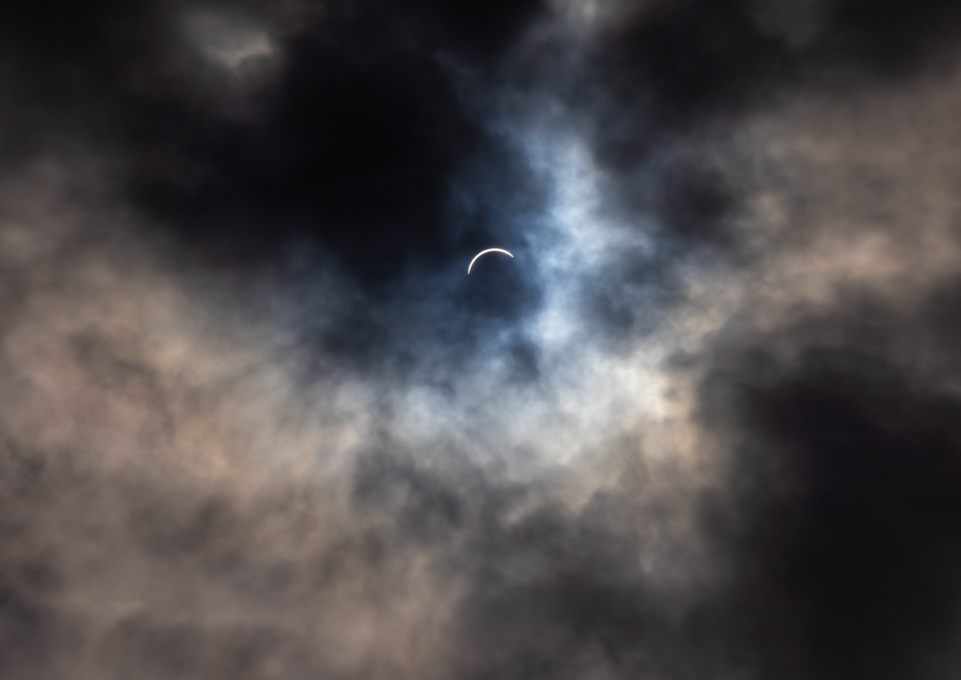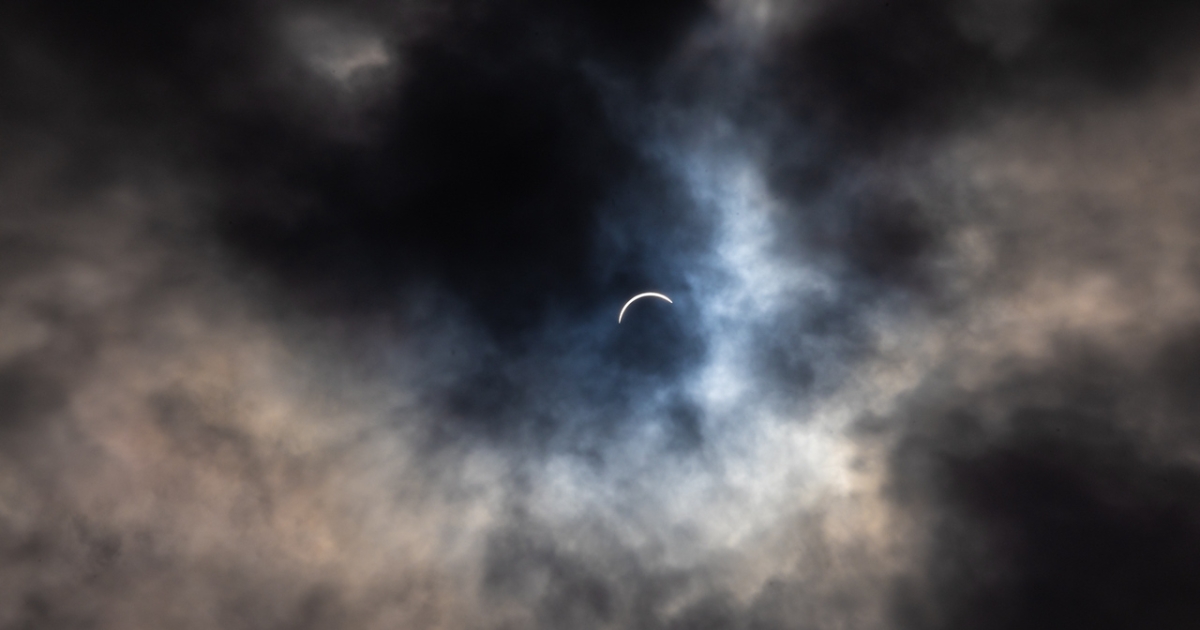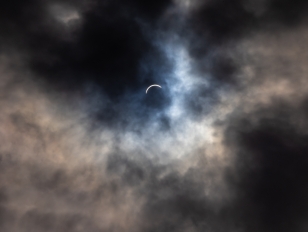
Buffalo State University was featured on WBFO-FM’s Disabilities Beat on April 17 for its accessible Eclipse Fest, held in celebration of the 2024 total solar eclipse.
The segment, “Did You Know You Can Hear the Eclipse?” by WBFO disability reporter Emyle Watkins, featured an interview with Jennifer Connelly, associate director of Buffalo State University’s Whitworth Ferguson Planetarium, about LightSound devices, which convert light into data and data into sound, so that visual happenings can be experienced by blind or partially sighted people.
“Some [of the devices] are just hooked to speakers so people could experience the change in sound as the light was changing,” Connelly said. “We also have something that actually takes the measurements of the light changes and records those. We have it set up so there’s a live graph here. This graph was fun to watch throughout, not just at totality, because every time we got a peek in the clouds, we got an extra boost in our sensor, we get a little more from the detector.”
The WBFO segment also featured a recording of the total solar eclipse captured on a LightSound device by WBFO reporter Alex Simone. In the video, a steady tone turns into rapid clicking until it becomes a slow click and then silence at totality.
Watkins also interviewed Andrea Gustafson, Buffalo State University learning and accommodations specialist, who worked the EclipseFest accessibility table.
“I was absolutely ecstatic to hear that something like this existed,” Gustafon said. “Complete totality was absolute quiet. Not only was it quiet for everybody who could see visually, but it was completely quiet for totality for us using the LightSound as well. It was amazing.”
Tactile books of the eclipse path and the moon, courtesy of the National Aeronautics and Space Administration (NASA), were also available at EclipseFest.
Both Connelly and Gustafson said accessibility—especially at big events like EclipseFest—is essential.
“I think there’s a lot of, ‘Oh, well, there’s not a need for this, okay? So the people who are blind or partially sighted, this is just not for them,’” Connelly said. “That’s slowly changing, but I would like to see a big jump in that.”
“We don't want to necessarily go into an event assuming that we know the type of person that’s going to be at a particular event,” Gustafson added. “That’s the only way we’re ever going to make an inclusive environment, is to continue to educate people so that they just make that universal design occur, so that we don’t have to worry about who’s out in the audience; we just automatically do it and everybody’s involved.”
Buffalo State’s Equity and Campus Diversity Office is the official designee of the university president to ensure that the campus not only abides by all federal and state laws and SUNY policies with regard to discrimination, including on the basis of disability, but also promotes and encourages equity, inclusion, and an appreciation for diversity at all levels.
Photo by Jesse Steffan-Colucci, Buffalo State photographer.



